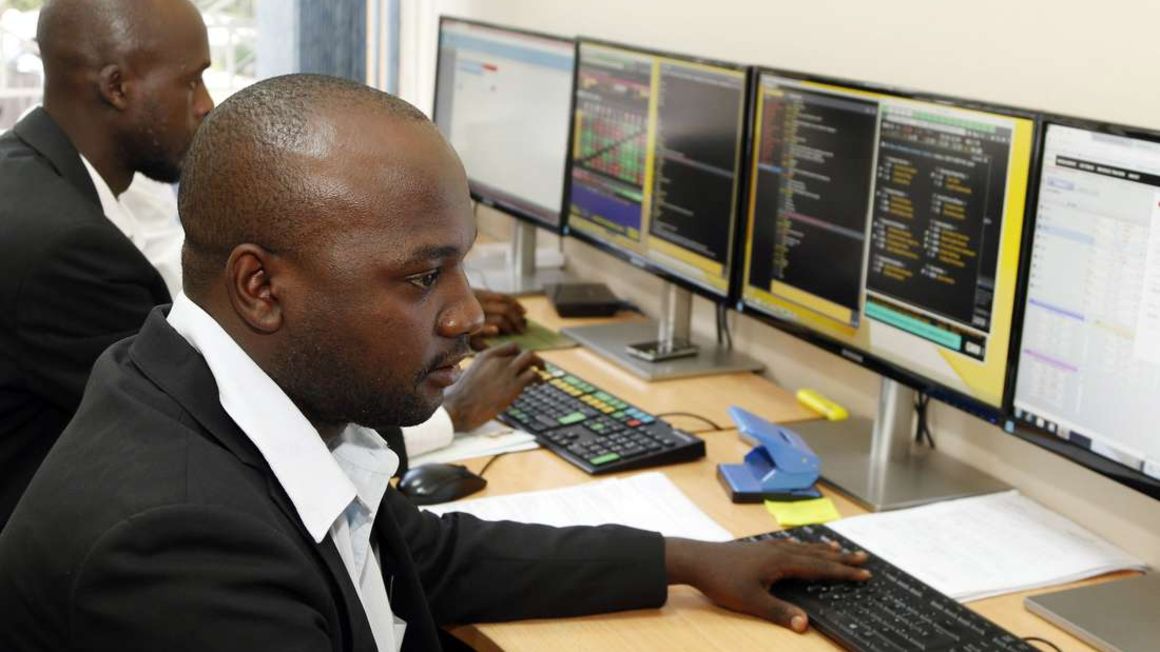Stockbrokers monitor trade on Uganda Securities Exchange in Kampala. Markets are under pressure from muted participation by investors. PHOTO | FILE | NMG Small and medium enterprises and the stockmarket in Uganda are facing another round of stress following the July 18 announcement of more coronavirus containment measures.
Although financial analysts are betting on business resilience in the second half of this year despite the poorer economic indicators, the reality is that there is a slump again in general economic activity with the suspension of mass public and private transport, suspension of weekly food and non-food markets and a longer curfew.
These measures mean fewer buyers for retail businesses since last month and increased signs of financial distress by small and medium enterprises.
The money market is suffering too. Daily trading activity registered at the Uganda Securities Exchange (USE) hit a record low last month, with little trading in most counters, according to equity trading reports.
“The new lockdown measures could yield negative impact against the stockmarket because of higher allocations made towards less risky assets like government securities. Some asset managers have drastically raised their allocations towards fixed income assets while some are unable to make new investment allocations.
“This has led to huge supply and very little demand in some stockbrokers’ order books of late. The listed banks partly survived the harsh effects of lockdown measures last year which kicked in towards the end of 2020 but will be hit hard this time round. Though the cross-listed stocks have performed quite well at the USE in recent days, the local stocks are yet to impress,” said Simon Mwebaze, General Manager at UAP-Old Mutual Financial Services Uganda Ltd.
“There is new money being made during the lockdown period but it is not moving to the stockmarket. Most of the listed banks have concentrated a lot on corporate clients and government securities and this means less credit exposure among small struggling businesses out there.
“Lockdown measures tend to compel people to invest more in real estate in order to minimise rent payment pressures and this means solid growth for the construction sector while the pending FID announcement could also boost business activity in the construction and energy sectors during the second half of 2021,” argued Joram Ongura, chief Executive officer at SBG Securities Ltd, a stock brokerage firm.
The value of government securities held by commercial banks grew by 39.9 per cent to Ush10.1 trillion ($2.8 billion) […]
